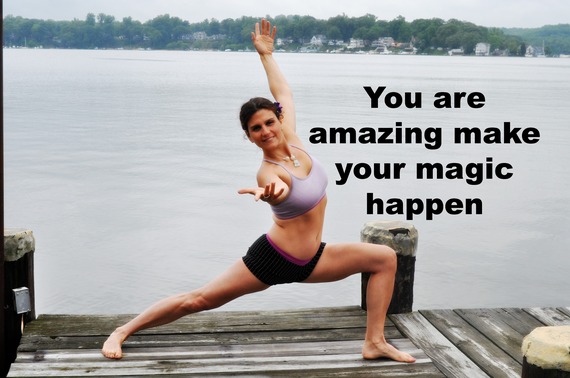Twenty-some years ago I dealt with a very painful and hard addiction called bulimia.
Bulimia is a type of eating disorder where one binges on usually very fatty and sugary foods until the stomach feels so extended, and in my case I chose to purge every time.
The act of purging gave me an endorphin rush of release. If I felt any emotions, whether it be happy, sad, anxious, worried, tired, or angry, binging and purging would take care of it.
This went on for almost 13 years on a daily basis.
In my case, I binged and purged up to 10 times a day.
When I was 15, I made a decision to diet and feel pretty.
I was also heartbroken from relationships, including a childhood where I felt alone, abandoned, misunderstood, judged and simple not good enough.
These wounds were carried on and surfaced in my teens with latching onto this eating disorder.
In hindsight, all I wanted was to stop the pain of not feeling that I was pretty enough, loved enough, understood enough or just enough.
I was in pain from failed relationships, and I thought that dieting was going to protect me from ever getting hurt again.
Of course, that was not the case, but in my mind that is what I was going to achieve.
My dieting went so extreme that I became anorexic for about six months, and when I felt starved to death, that is when I started binging and purging.
I kept telling myself I was going to stop tomorrow, and the next day and the next day. Before I knew it, I was addicted to the endorphin rush so intensely I felt trapped. Caged in my own body.
When the dieting started, in my mind it was about self-image. Today I understand that it was a loud call for help.
After a few years of dealing with bulimia, how my body looked was secondary on my focus. I just wanted the "fix" that the act of binging and purging offered me. I felt relief.
But my body was deteriorating from so much self-injury. I knew it, and it was never my purpose to kill myself. I just wanted to "feel" better.
This is the case with most people that deal with addiction such as bulimia or other self-injury addictions.
So please don't judge if you know someone that has this. They are dealing with a tremendous amount of pain, and they need help.
Bulimia is an addiction, one that can be very hard to overcome. We have food everywhere we go. It is legal, and most of us use food as a way to share each other's company.
Because of this, bulimia can be a very "lonely addiction." Most bulimics eat behind the scenes and have a really hard time sharing meals with others.
For people who deal with bulimia, when they binge and purge they often feel happy for a moment or two. There is actually a chemical release that happens with binging and purging where the endorphins in the brain increase, and it feels like an adrenaline rush going through every cell of the body.
Binging and purging is an addiction like any other addiction but greatly misunderstood. Most people who choose this as an escape have very deep-rooted wounds of not feeling that they are worth it.
And what they have to offer to the world means something to someone else, and most importantly they feel alone.
Maybe because as kids they felt abandoned, abused or misunderstood. The act of binging and purging is simply the symptoms of those deep-rooted issues.
In my own personal experience I felt so ashamed, so misunderstood, that I hid it from everybody, which made it even harder for me to not feel separate from the rest of the world.
How recovery began for me:
My recovery began when I started to look for people who instead of judging me were there to unconditionally hold me in that space.
These people understood that I was in so much pain, they showed me unconditional love and compassion.
That was the best gift I was given and the first step towards recovery.
I also discovered the world of holistic medicine and spirituality. I began to practice yoga, acupuncture and meditation as well as other modalities of spiritual healing.
Because of my own amazement at these wonderful modalities, I decided to become an acupuncturist, later incorporating yoga, meditation, healthy living and practices that are based on love instead of fear.
These were my strongest medicines.
These medicines were about love, compassion, understanding and self-acceptance.
Today, 20 years into recovery, I can see clearly now that the purpose of my suffering was not just about recovery for myself but to have the understanding and the capacity to create a loving, healing space for others to do the same.
If you're struggling with an eating disorder, call the National Eating Disorder Association hotline at 1-800-931-2237.
